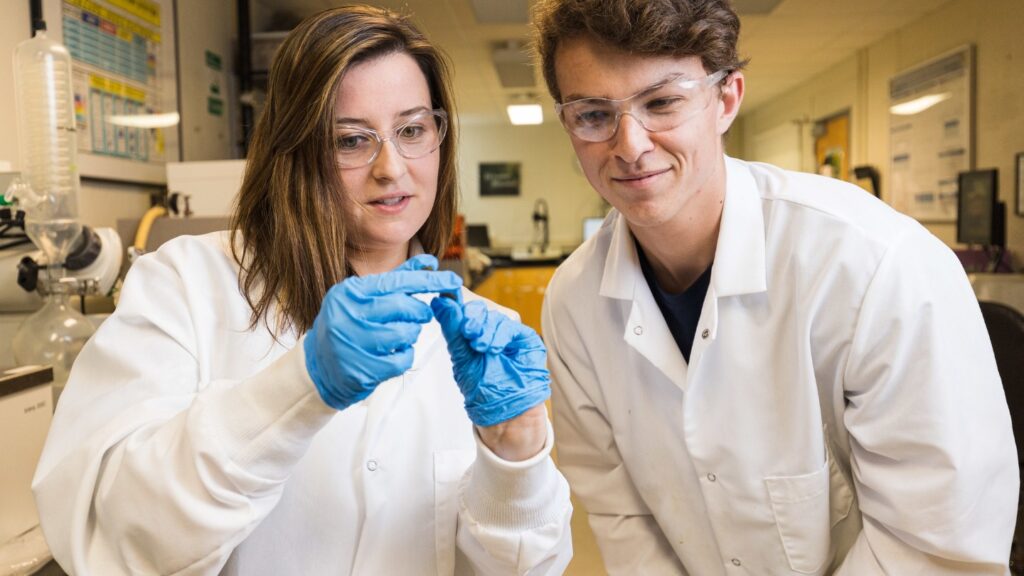Engineering a smarter, better plastic

Prof. Melissa Gordon ’11 and Jimmy Hastie ’22
Humankind would be lost without its one of most ubiquitous materials—natural and synthetic polymers—and now Lafayette College Prof. Melissa Gordon is working to make them even more adaptive and useful.
Gordon, assistant professor of chemical and biomolecular engineering, is developing force-responsive synthetic polymeric materials by incorporating chemical units at the molecular level that can activate and heal in response to the deformation.
Her work, supported by a five-year $600,000 National Science Foundation Faculty Early Career Development Program (CAREER) award, has potential medical uses, including tissue generation and repair, artificial muscles, and drug delivery.
This project will help advance research toward developing materials offering enhanced safety, longer lifespan, and reduced environmental impact and holds promise for advancing “smart” material design and development.
“In nature, biological systems can constructively respond to mechanical force, such as the healing of skin after a cut,” Gordon says.
“Taking this as inspiration, this project aims to develop force-responsive synthetic polymeric materials that can remodel after force is applied,” she adds. “The goal is to externally regulate the extent of force-triggered activation and remodeling using carbon dioxide as an external stimulus.”